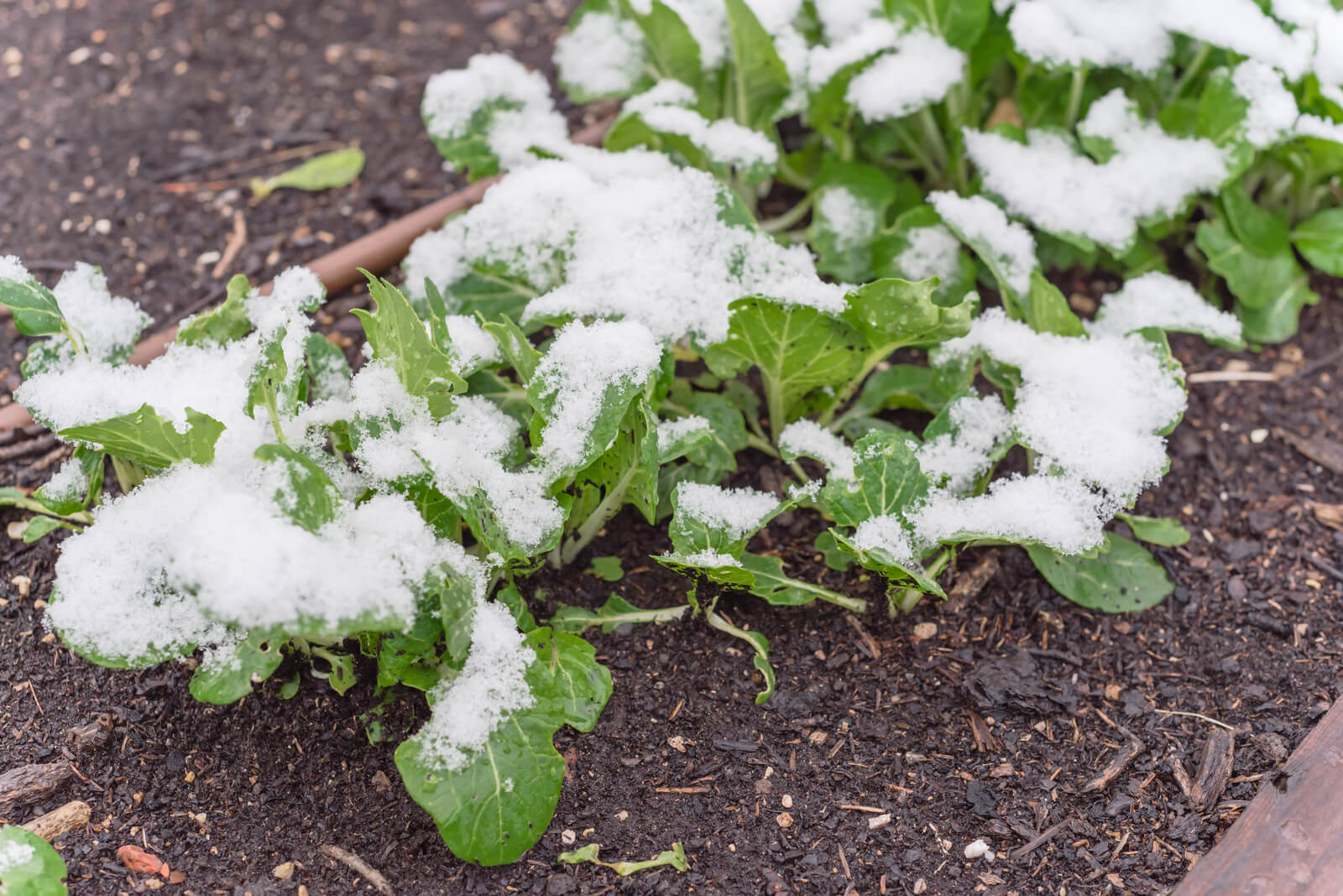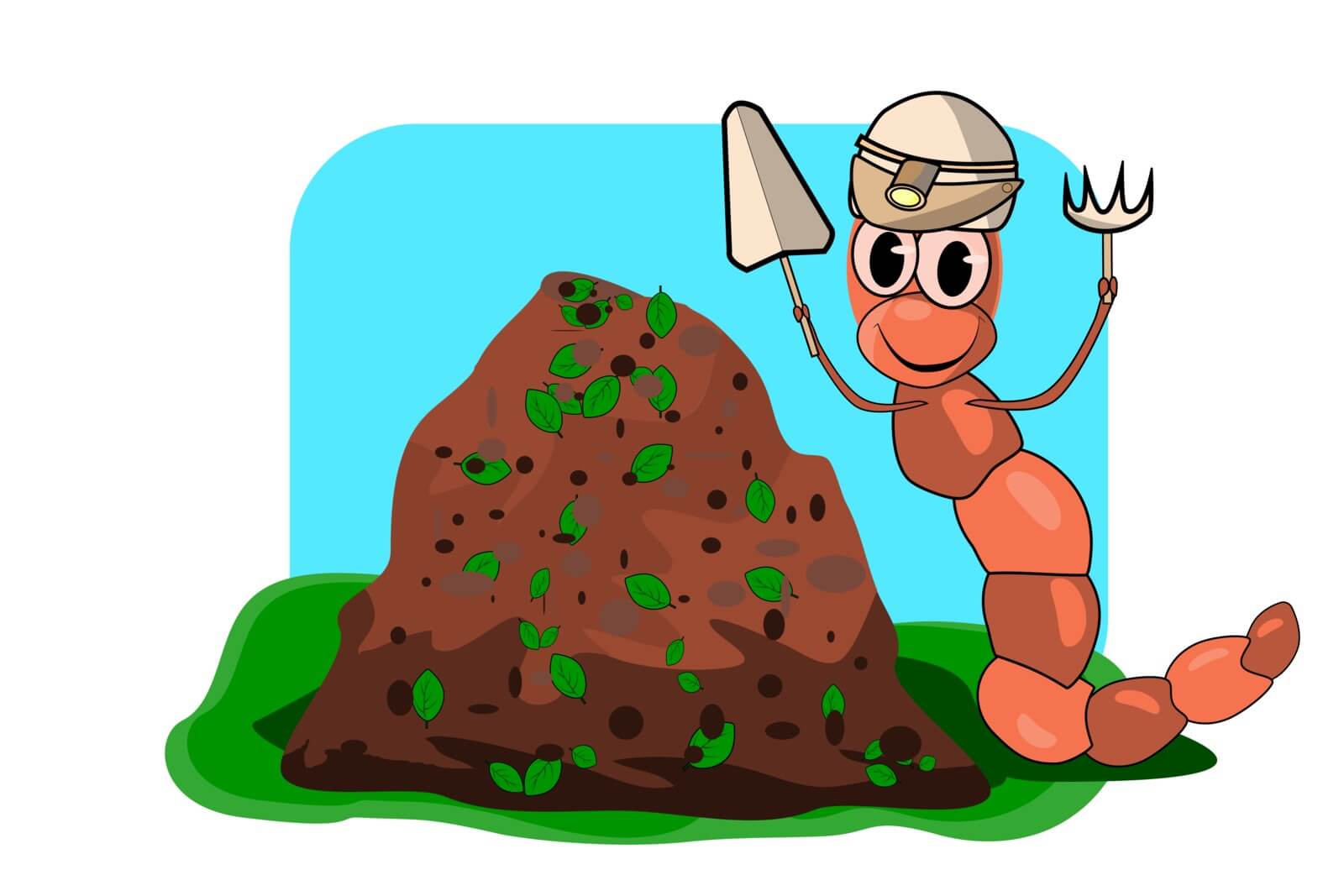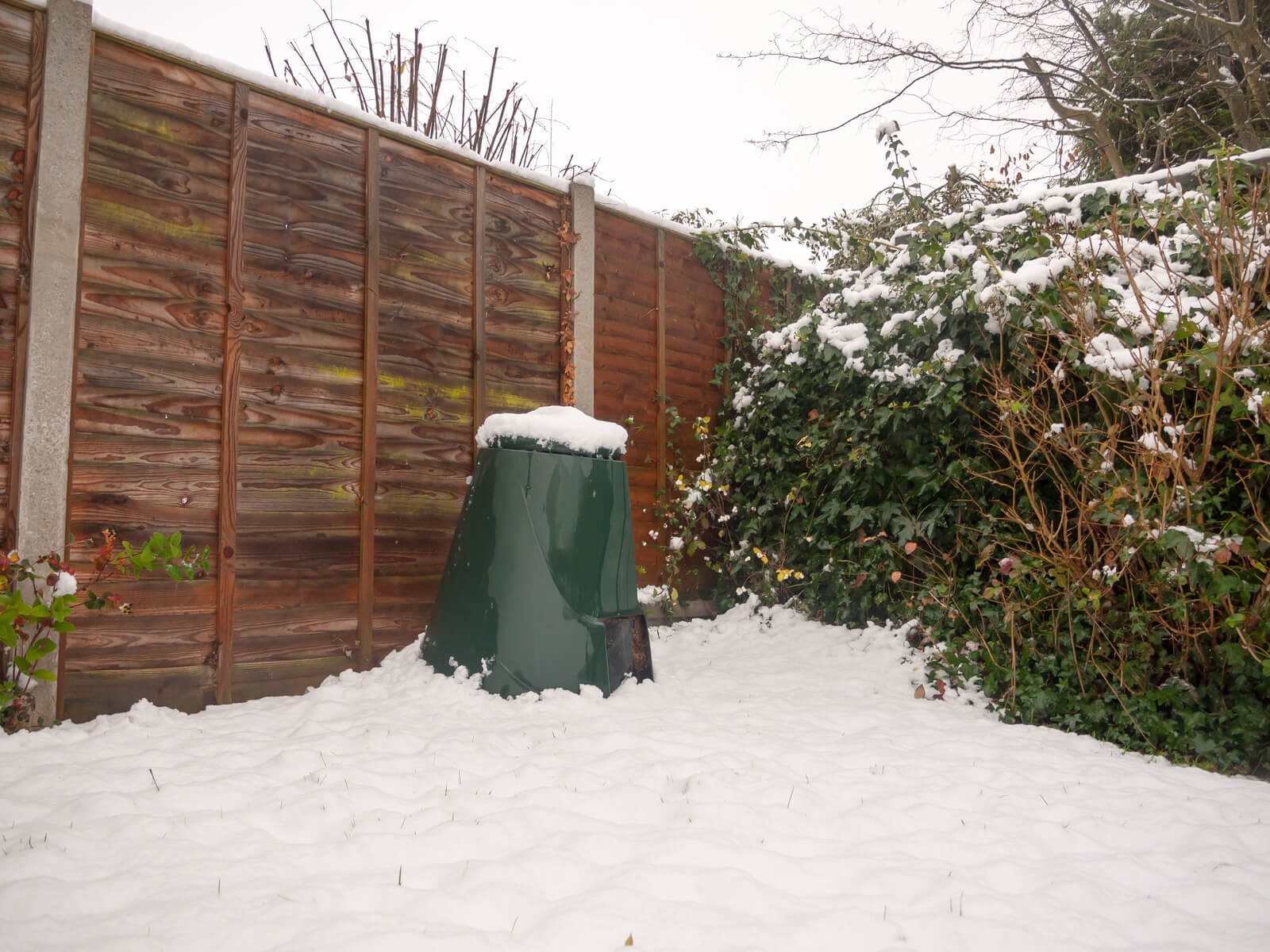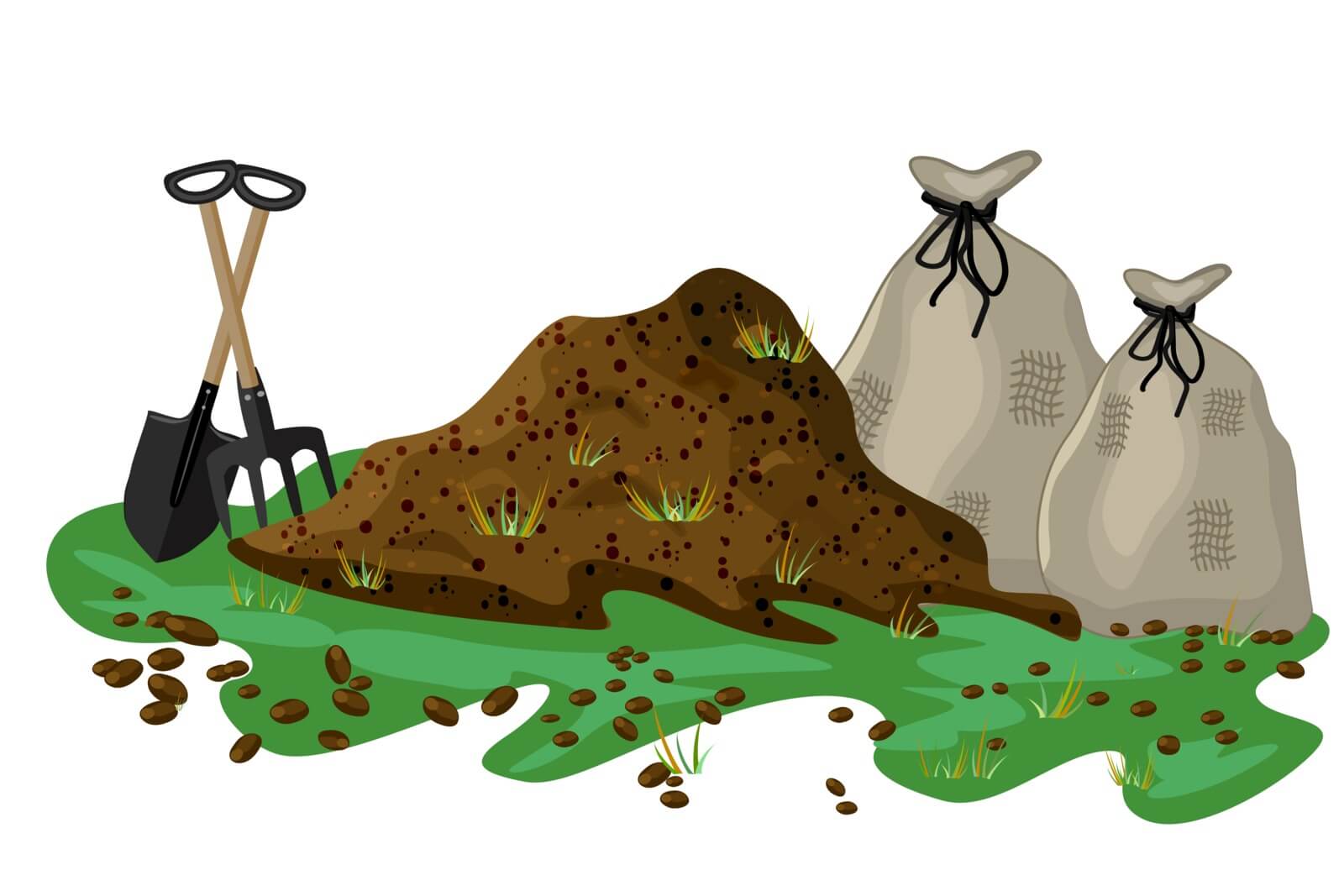- Home
- How to Compost At Home
- Composting in the Winter
composting in the winter- 15 effective tips for a perfect winter compost

1. Use a compost bin with a lid. This will help keep the compost warm and insulated.
2. Add shredded paper, leaves, or straw to help keep the compost pile from freezing.
3. Make sure your compost pile is at least 3 feet high and 3 feet wide, so it has plenty of insulation.
4. Rotate your compost pile regularly to help mix in new material and keep it warm.
5. If you have a composter that uses worms, make sure to bring them inside during the winter.
6. Add green waste (grass clippings, vegetable peels, etc.) to your compost pile to help it break down faster.
7. If your compost bin is in an exposed location, try to add a layer of insulation, like hay or straw, to help keep it warm.
8. Use a thermometer to monitor the temperature of your compost pile. Aim for a temperature of around 55 degrees Fahrenheit to keep things moving along.
9. Add some manure or other nitrogen-rich material to help keep the compost pile cooking.
10. Choose the right spot: Find a location for your compost pile that is out of the way, but still convenient to get to. The spot should also be well-drained and have plenty of sun exposure.
11. Start composting earlier in the season. The longer you wait, the harder it can be to make compost when the weather gets colder and wetter, making it harder for you to reach your compost pile and turn your scraps into compost.
12. Keep your compost pile away from plants that are susceptible to diseases or pests, like fruit trees or roses, which would spread their diseases onto your pile if they were in close proximity
13. Compost in a well-ventilated area with good air circulation.
14. Don't put wet or damp items in your composter; this will cause mold to grow and make it difficult for the compost to break down.
15. Getting the right ratio of carbon and nitrogen
Composting is a great way to recycle organic waste, and it can also help improve your soil. However, there are some things you need to know to compost effectively in the winter. You need to make sure you have the right ratio of carbon-rich materials to nitrogen-rich materials. If you don't have enough carbon, your compost will be too wet and will take a long time to dry out. If you don't have enough nitrogen, your compost will be too dry and won't break down properly. You can find the right ratio by using a compost calculator.
What are the benefits of composting in the winter?
1. The colder temperatures help to break down the organic matter more quickly
Composting in colder temperatures helps to break down the organic matter more quickly. The colder the temperature, the slower the composting process will be. This is because microorganisms and insects that help with the composting process work more slowly in colder weather.
2. The insulation from the snow helps to keep the compost pile warm, which helps with the breakdown process.
One of the great benefits of composting in the winter is that the insulation from the snow helps to keep the compost pile warm, which helps with the breakdown process. This is important because the microorganisms that break down compost need a temperature of around 55 degrees Fahrenheit to thrive.
3. If you have a cover on your compost pile, the snow will help to keep it in place.
Covering your compost pile with snow will help to keep it in place during the winter. This is particularly important if you have a cover on your compost pile, as the snow will help to keep the pile insulated from the ground. If you do not have a cover, make sure to spread newspapers or other insulation over the top of the pile to prevent moisture and critters from getting inside.
4. Composting in the winter helps to kill weed seeds and pests.
In the winter, the ground is usually frozen, which means that there is less of a chance for pests to invade your compost pile. Additionally, the lack of sunlight will slow down the growth of weeds, making it easier to compost them.
5. It’s also great for your compost pile; if you compost in the winter, your pile will be more nutrient-rich and will last longer
Composting in the winter is a great way to add nutrients to your soil and keep your compost pile going strong. Because the weather is colder, the process of breaking down organic matter happens more slowly, so your pile will be more nutrient-rich. In addition, the insulation from the snow will help keep your pile from freezing.
6. Adding compost to your garden in the winter can help protect your plants from the cold weather
Compost is a great way to protect your plants from the cold weather in the winter. It helps to insulate the soil and keep it warm, which can help your plants stay healthy and thrive. Compost also helps to improve the quality of the soil, which can help your plants grow bigger and stronger.
7. In cold weather, the process of composting happens more slowly, which gives you more time to add materials to the pile
If you're looking to compost in cold weather, don't worry - you have more time to add materials to the pile. The process of composting happens more slowly in cold weather, so you don't have to worry about adding new material every day. This gives you plenty of time to gather materials like leaves, food scraps, and grass clippings. In fact, adding organic matter to your compost pile is one of the best ways to keep it warm!
What are the disadvantages of composting in the winter?
The main disadvantage of composting in the winter is that it can be harder to keep the compost pile warm enough to make it effective as a recycling process. In addition, the frozen ground makes it difficult for the worms to get food and create healthy compost. Finally, snow can prevent access to the compost pile, making it difficult to collect the waste material.
When can you compost in the winter?
Composting is a great way to reduce your waste and give your plants the nutrients they need, but when is the best time to compost in the winter?
Well, according to the experts, late fall and early winter are great times to compost. This is because the colder weather helps break down organic matter faster. Plus, your compost will be ready to use in the spring when your plants start growing again.
What should I compost in the winter?
Composting in the winter can be a challenge because there is less organic material available to compost.
However, there are a few things you can compost in the winter: kitchen scraps, leaves, straw, and wood chips. Kitchen scraps can be composted in a small compost bin or even a plastic bag.
Leaves can also be composted in a small bin or bag, or they can be added to a pile of compost. Straw and wood chips can also be added to a pile of compost.
What are the different ways to compost in winter?
There are a few different ways to compost in winter..
The first way is composting with worm in the winter. Worm bins can be kept inside or outside, and the worms will help to break down the organic material.
The second way is to use a hot compost bin. This is a bin that heats up the compost and helps it break down faster. The bin can be heated with an electric heating element or with solar power
The third way to compost in winter is to use a cold composting method. In this method, you just put the food scraps in a pile outside and let nature take its course. The disadvantage of this method is that it takes longer for the food scraps to decompose.
The fourth way to compost in winter is to use an indoor composter. Indoor composters come in many different shapes and sizes, and some even have heating elements to keep the compost warm. Another option is to use a worm bin. Worm bins can be kept inside or outside, and the worms will keep the compost warm.
How long does composting take during the winter?
Composting is a process that takes place over time, and the length of time it takes will depend on the weather conditions. In general, composting will take longer during the winter months, since the colder temperatures will slow down the process.
Composting also depends on the weather conditions. The process may also be influenced by how often you turn your compost and what kind of material you use for it., the temperature, moisture, weather, and decomposition rate
Generally speaking, it can take anywhere from five to six months for your compost to break down fully in winter.
However, there are some things you can do to speed up the composting process, such as adding an activator or using a compost bin with a lid.
How to prepare your garden for composting during the winter?
1. Clear away any debris or dead plants in your garden.
2. Spread a layer of black plastic over the ground in the garden. This will help to keep the composting process heat and moisture tight.
3. Add a layer of straw or other organic material to the compost pile. This will help to breakdown and absorb the nitrogen and other chemicals in the compost.
4. Add your garden waste, such as leaves, grass clippings, and branches, to the compost pile.
5. Cover the compost pile with a thick layer of soil or sand, and water it well.
6. Turn the compost pile every two to three weeks, and add more organic material as needed.
7. Keep the compost pile out of direct sunlight and away from dogs, cats, and other animals.
8. When the compost is ready, carefully remove it from the garden and spread it on a field or in a large area where it will be used.
How often to turn the compost in winter?
Composting is a great way to reduce your waste and help the environment. In the winter, it's important to turn your compost pile every few weeks to keep it from freezing.
If it does freeze, simply wait for it to thaw and start turning it again. Turning your compost helps to break down the organic matter and create nutrient-rich soil for your garden.
Turning the compost helps mix in new material so it can decompose more easily, and also helps break up clumps so air can circulate better.
how do winter compost pile heat up?
In general, compost piles do not heat up in the winter. There are a few exceptions, such as if the pile is covered with insulation or if it is in a warm location. If you have frozen ground, you may need to thaw it out before starting your compost pile.
Winter compost piles do not heat up as much as those in the summer, but they do still produce some heat. This is because the microorganisms that break down the organic matter need a certain amount of heat to function well. In the winter, the temperature in most compost piles will be around 50 degrees Fahrenheit, which is enough to keep the microorganisms active.
Best Practices to Follow while Caring for a Winter Compost Pile
1. Follow the correct procedures for composting in the winter. This means turning your pile every few weeks, keeping it well aerated, and adding fresh materials as needed.
2. Make sure to keep a close eye on your compost pile in order to make sure it's still creating good conditions (smelling earthy, seeing worms, etc.). If things start to go wrong, take appropriate steps to fix the problem.
3. Make sure to keep your compost pile in a location that is warm but not too hot, as this will help the microorganisms work more effectively.
4. If you find that your compost pile is not breaking down as quickly as it used to, it may be because the materials you are using are not appropriate for winter composting. Check with your local municipality about what materials are allowed in winter compost piles.
5. Remember that winter composting takes time and patience, so don't be discouraged if it takes a little longer than usual to see results.
6.. Keep a close eye on your compost pile during the winter months to make sure it's not freezing or burning down. If things get too cold, cover your bin with a layer of straw or hay to keep the moisture in.
11 Materials to Avoid in Winter Composting
1. Plastic bags
One of the most important things you can do to avoid plastic bags in your compost pile during the winter is to use a compostable bag. There are a number of different types of compostable bags on the market, so make sure to choose one that will work best for you.
Another way to avoid plastic bags in your compost pile during the winter is to sort your kitchen waste into black, green and brown categories. This will help you know which type of waste should go into the compost bin and which should be recycled.
2. Styrofoam
Styrofoam is not great for composting because it can create air bubbles in the material which can cause problems with aeration and colonization. Additionally, styrofoam is a petroleum product and contains chemicals that can leach into the compost over time. If you must use styrofoam during winter composting, try to recycle or reuse it instead.
3. Newspaper
One of the most common problems people run into with composting is that they end up with a lot of compost made from newspapers. While a newspaper can be a valuable resource for recycling, it's not the best choice for composting in the winter because it doesn't have much life left in it. Here are five tips for avoiding newspaper during winter composting:
4. Corrugated cardboard
During the winter, it can be tricky to compost in warm weather conditions. That's because cardboard boxes tend to absorb moisture and heat, which can make them difficult to manage. To avoid this problem, try to keep your compost pile well-drained and free of excess water. You can also try using other materials that are less likely to cause problems, like newspaper or shredded paper. And finally, make sure you keep an eye on the weather forecast in order to ensure that composting stays manageable
5. Avoid Food waste during winter composting
There are many good reasons to avoid food waste during winter composting. One reason is that it will help the composting process work more efficiently. When food waste is added to the compost pile, it can create conditions that are not ideal for breaking down the organic material. This can lead to a smelly and slow-working compost pile.
Another reason to avoid food waste is that it can attract pests. This is especially true during the winter when there may not be as many other food sources available. Pests can cause damage to your compost pile and also contaminate your organic material with their droppings.
Finally, avoiding food waste during winter composting will help you save money. By keeping your compost pile healthy and free of pests, you will not have to spend money on pesticides or other treatments.
7. Egg cartons
During the winter, composting egg cartons can be difficult because they tend to freeze and become brittle. This can cause them to break down into small pieces that are difficult to compost. In addition, the ink on the egg cartons can contaminate the compost pile. For these reasons, it is best to avoid composting egg cartons during the winter.
8. Metals (copper, aluminum, brass)
Metals like copper, aluminum, and brass can corrode in compost piles during winter weather. The metals can also release toxins that can harm the composting process and the final product. In order to avoid these problems, it is best to avoid using metal in composting during the winter months.
9. Glass bottles and jars
Glass jars and bottles are not recommended for winter composting because they can shatter in cold weather. When the temperature drops below freezing, the water inside the glass can turn to ice and cause the glass to break. Shards of glass can also be harmful to compost pile critters.
10. Motor oil and grease
Motor oil and grease should not be used in compost piles during the winter because they will lower the temperature of the pile and slow down the decomposition process. This will result in lower quality compost that is not as effective for gardening. Additionally, using motor oil and grease can be harmful to the environment.
How to Store Compost in the Winter?
1. One way to store compost in the winter is to place it in a large, covered container outside. Make sure the container has a good seal so that moisture and warmth don't escape, and place it near a sunny spot. Keep an eye on the compost and add fresh materials as needed.
2. Another way to store compost in the winter is to make small batches and store them in sealed containers in the fridge or freezer. This method allows you to control how much compost goes bad, and you can use it as needed without having to wait for it to thaw out.
3. If you can't store compost in any of the above ways, you can still use it in your garden during the winter. Just be sure to apply a layer of mulch over the compost to help keep it warm and moist.
4. Finally, if you don't have room to store compost or you don't want to bother with making it, you can simply throw some fresh organic matter into your garden every fall and spring. This will help to improve the quality and texture of your soil, and will provide nutrients for plants year-round.
FAQ
composting in the winter -How to compost horse manure in cold climates?
Composting horse manure in cold climates is a bit more complicated than in warm climates, but it can still be done. The first step is to gather horse manure, either from your own horses or from a local stable, and spread it out in a thin layer to allow it to dry.
Once it is dried, it can be chopped into small pieces with a shovel or lawnmower. After it has been chopped, the next step is to add a compost starter, which is available at most garden stores.
The compost starter will help speed up the process and create a healthy environment for bacteria to grow. You'll also need some kind of compost bin, and a way to keep the pile warm during the winter.
The manure can be added to the bin in its raw form, or you can add other organic materials like straw, hay, or leaves to help break down the manure.
The bin should be turned every few days to aerate the pile and help it decompose. If you live in a cold climate, you'll probably need to insulate the bin with plastic or straw in order to keep it warm.
Can you compost all year round?
Composting is a great way to reduce your waste and turn it into nutrient-rich soil for your garden. However, many people believe that you can only compost in the spring and summer.
That's not true! You can compost all year round, using a variety of methods. For example, you can use a compost bin with a heating element to keep your compost warm during the winter. Or, you can use a cold composting method that doesn't require any heat.
There are also many different ways to add carbon and nitrogen to your compost pile, so you can find one that works well for you. Composting is a great way to improve your garden, and it's easy to do year-round!
composting in the winter- final thought
Composting in the winter is possible with a little bit of effort. By following these simple tips, you can keep your compost pile healthy and functioning all winter long. And who knows, you may just find that you enjoy composting in the winter as much as you do in the summer!


